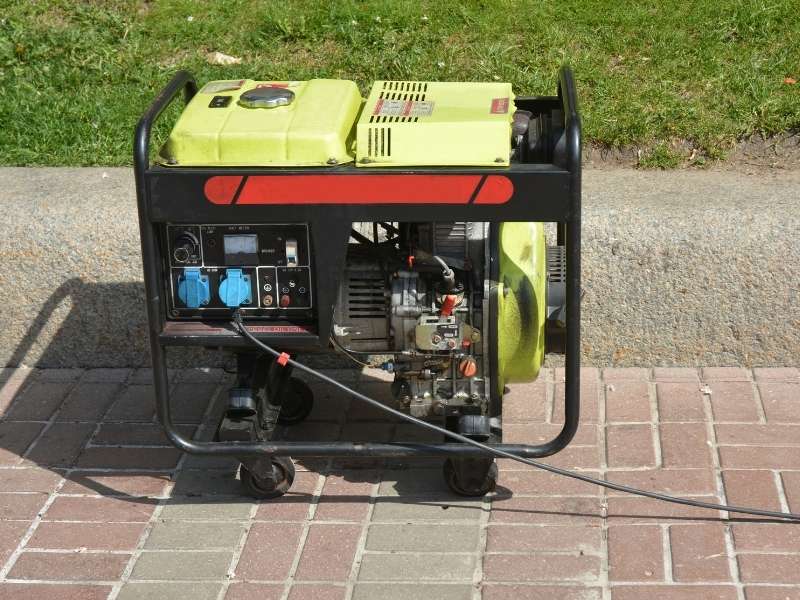While the nation’s power suppliers have a good record when it comes to providing a reliable source of electricity, there are times when even the best power suppliers will experience outages. Recent hurricanes and wildfires are good examples of events that routinely interrupt power to homes. However, even a typical thunderstorm can create a major outage. That’s why many homeowners are electing to install standby generators designed to provide at least minimal power when outages occur. Of course, that’s when generator maintenance tips are necessary and knowing a little bit about how generators work.
However, standby generators often see months, or even years, when they are not in use. In all too many cases, property owners ignore their generators until they need them, and that’s a mistake. Standby generators require routine maintenance to ensure they’re always ready when the power goes off. So, what types of generator maintenance should owners expect?
If this is something that concerns you and your family, we invite you to continue reading. Here are ten generator maintenance tips to ensure your generator is always ready when the power goes out.
10 Generator Maintenance Tips You Need to Know

1. Get the Right Size Generator for Your Home
Generators come in a number of sizes to accommodate the needs of different users. Before installing a generator, ask an expert for advice for optimal installation. If you find an existing standby generator is not providing enough power, discuss updating options with an expert and make sure the new unit is correctly sized.
2. Test the Generator Frequently
Most standby generator manufacturers recommend testing weekly to ensure the system functions correctly. In many cases, those tests can be automated. Ask your generator maintenance experts if your generator runs self-tests. If not, ask the experts how and when to test your generator.
3. Set Your Generator to Auto Mode
Ask your maintenance professional to ensure the generator will start automatically during an outage. If no one is home when an outage occurs, the unit should still operate to protect perishables and safeguard electronic devices. For example, most modern security systems have some type of backup power supply for times when the power is out. However, there is a limit to the capacity. In other cases, people with health issues often depend on electrical power to operate oxygen supply systems or other medical devices.
4. Keep Sufficient Fuel on Hand
In cases where the standby generator operates using natural gas, this generally isn’t an issue. However, in areas where natural gas is not available, another source of fuel must be provided. Make sure there is sufficient gasoline, diesel fuel, or other fuels available to operate the system during a prolonged outage. Remember that stored fuel may deteriorate, which means you must replace old fuel periodically. Ask your maintenance professionals how often your fuel supply should be replaced.
5. Check the System’s Oil Level After Every Use
Most newer generators won’t use much oil, but there is a chance of leaks developing. That’s especially true when units out of use for long periods. Keep a supply of the required oil on hand and check the oil level after every use.
6. Inspect the Unit’s Exhaust System Frequently
One of the dangers involved when using a standby generator is carbon monoxide poisoning. Even standby units that are outside the home create a carbon monoxide issue without ventilation. The CDC recommends all property owners install carbon monoxide detectors to alert them if CO levels become too high.
7. Set a Regular Maintenance Schedule for the Electrical System
Standby generators use a switching system design that automatically replaces the home’s normal power supply during an outage. To protect the home and it’s occupants, make sure to test the electrical switching system periodically to ensure the protection of everyone. Remember, back-feeding power through the power company’s lines also endangers utility company workers. Make sure all aspects of the standby system function correctly.
8. Inspect the Generator’s Housing for Issues
You must never compromise the generator’s protective housing. So, ensure there is no blockage in the air supply. Since generators are noisy, users often consider installing some type of covering to block some of the noise. However, it’s important to ensure the housing does nothing to interfere with the operation of the system. Also, never install additional housing around a generator unless you first check with a generator expert.
9. Routinely Inspect the Standby Generator’s Air Filter
Clean or replace the filter regularly. It’s always a good idea to keep at least one spare air filter on hand for dusty conditions. Dirty filters make it impossible for the system to operate efficiently and lead to serious engine damage.
10. Test the Smart Features to Ensure they Function Properly
Many newer standby generators take advantage of smartphone technology and other devices to more effectively operate the system. It’s always a good idea to verify the system’s smart features are functioning properly. So, make sure to update your apps regularly.
Local Experts are Always Happy to Help
If you’re unsure how to go about inspecting and maintaining your home’s standby generator, consider contacting experts for help. Local experts are always happy to work with area property owners to ensure their standby generators will function properly when that next power outage occurs. Since safety is always important, those professionals will inspect and maintain a system so the power supply is reliable and your family is safe.
Since there are numerous elements to inspect and maintain, standby generator experts generally recommend having service professionals inspect and maintain a home’s generator at least twice a year to ensure the system will always function as intended.
Protect Your Family’s Health and Safety
Your health and safety are important so opting for the safest option is always a good idea. For more information, contact a generator repair and maintenance expert now. Those experts will discuss your home’s system and recommend specific types of service. If you need additional advice, contact a standby generator professional today for help or to schedule service.
If you have other suggestions to add to these generator maintenance tips, please leave a comment below. You will also find below several links leading you to more articles about all things design.
Images Courtesy of Canva.
Other Posts You Might Enjoy:
What You Need to Know About Backup Generators for Your Home
Homeowners Guide: Benefits Of Having A Backup Generator
Next Level Home Improvement: 10 Tips For Hiring the Best Paver Installer





